Haji Muhammad Iqbal Baloch (1913-1981)
Founding Father of Visionary Group, Recipient of Tamgah–e–Khidmat
Haji Muhammad Iqbal Baloch was one of the leading activists in Pakistan Movement who subsequently became the Advisor to the President of Pakistan, Field Marshal Muhammad Ayub Khan. He was twice elected as the Father of the City, Karachi in early 50’s when it was the capital of Pakistan. He played a major role in the development of Balochistan & Pakistan, especially Gwadar. At a time when Gwadar was not a part of Pakistan but of Oman, realizing the geostrategic importance of Gwadar and its natural deep seaport and forecasting it to be a part of progressive Pakistan, he pushed the initiative of consolidation to President Ayub Khan due to which the Government purchased Gwadar from Oman and made it a part of Pakistan in 1958.
CPEC’s base-work started during his time, and due to his foresight he built a deep relationship with Chinese leadership, Mao Zedong and Chu En Lye. He spearheaded the integration of far flung areas with business and commerce and introduced Pakistan International Airlines into the remote corners of Balochistan as GSA. In 1988 Gwadar was air-linked to Muscat through his company National Express. He was awarded Tamgha-e-Khidmat by the Government of Pakistan for his exemplary services and historical role. The vision of Haji Muhammad Iqbal Baloch is kept alive by his sons through the Visionary Group.
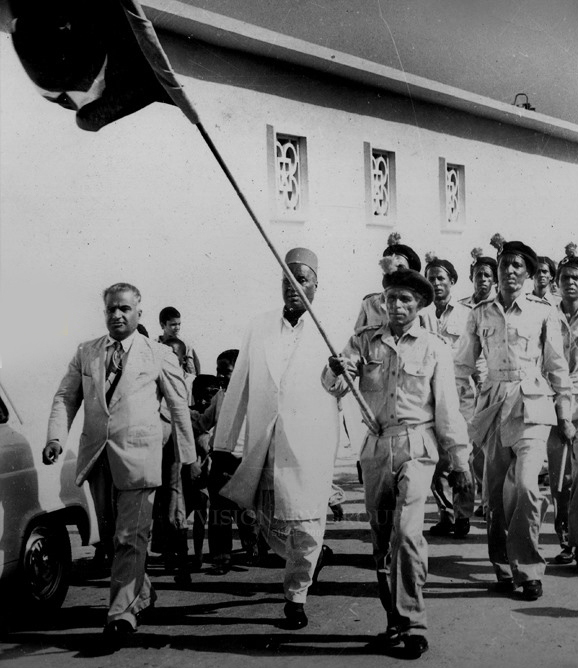
Father of City (Mayor of Karachi) 1957-1958
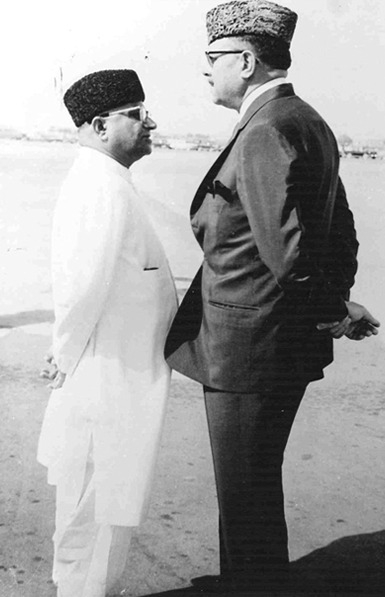
Leading Change
Historic letter to government of Pakistan for purchase of Gwadar from Oman
Haji Muhammad Iqbal Baloch was one of the leading activists in Pakistan Movement who subsequently became the Advisor to the President of Pakistan, Field Marshal Muhammad Ayub Khan. He was twice elected as the Father of the City, Karachi in early 50’s when it was the capital of Pakistan. He played a major role in the development of Balochistan & Pakistan, especially Gwadar. At a time when Gwadar was not a part of Pakistan but of Oman, realizing the geostrategic importance of Gwadar and its natural deep seaport and forecasting it to be a part of progressive Pakistan, he pushed the initiative of consolidation to President Ayub Khan due to which the Government purchased Gwadar from Oman and made it a part of Pakistan in 1958.
CPEC’s base-work started during his time, and due to his foresight he built a deep relationship with Chinese leadership, Mao Zedong and Chu En Lye. He spearheaded the integration of far flung areas with business and commerce and introduced Pakistan International Airlines into the remote corners of Balochistan as GSA. In 1988 Gwadar was air-linked to Muscat through his company National Express. He was awarded Tamgha-e-Khidmat by the Government of Pakistan for his exemplary services and historical role. The vision of Haji Muhammad Iqbal Baloch is kept alive by his sons through the Visionary Group.



Leading Change
Historic letter to government of Pakistan for purchase of Gwadar from Oman
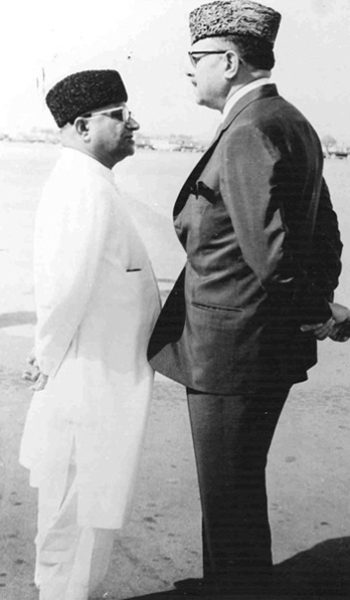
Haji Muhammad Iqbal Baloch was one of the leading activists in Pakistan Movement who subsequently became the Advisor to the President of Pakistan, Field Marshal Muhammad Ayub Khan. He was twice elected as the Father of the City, Karachi in early 50’s when it was the capital of Pakistan. He played a major role in the development of Balochistan & Pakistan, especially Gwadar. At a time when Gwadar was not a part of Pakistan but of Oman, realizing the geostrategic importance of Gwadar and its natural deep seaport and forecasting it to be a part of progressive Pakistan, he pushed the initiative of consolidation to President Ayub Khan due to which the Government purchased Gwadar from Oman and made it a part of Pakistan in 1958.
CPEC’s base-work started during his time, and due to his foresight he built a deep relationship with Chinese leadership, Mao Zedong and Chu En Lye. He spearheaded the integration of far flung areas with business and commerce and introduced Pakistan International Airlines into the remote corners of Balochistan as GSA. In 1988 Gwadar was air-linked to Muscat through his company National Express. He was awarded Tamgha-e-Khidmat by the Government of Pakistan for his exemplary services and historical role. The vision of Haji Muhammad Iqbal Baloch is kept alive by his sons through the Visionary Group.
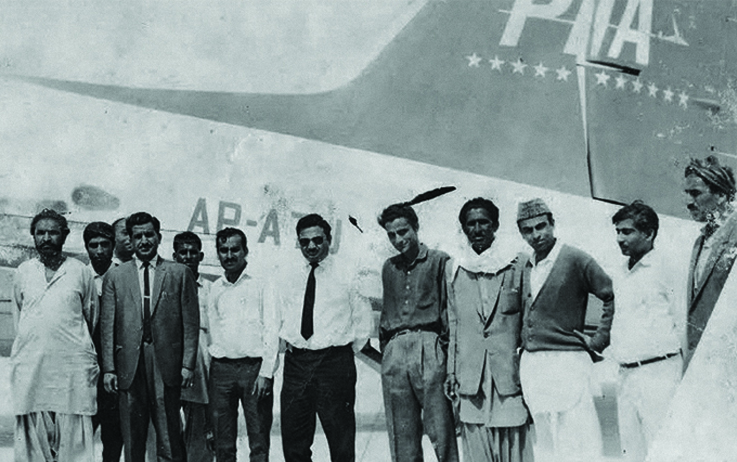
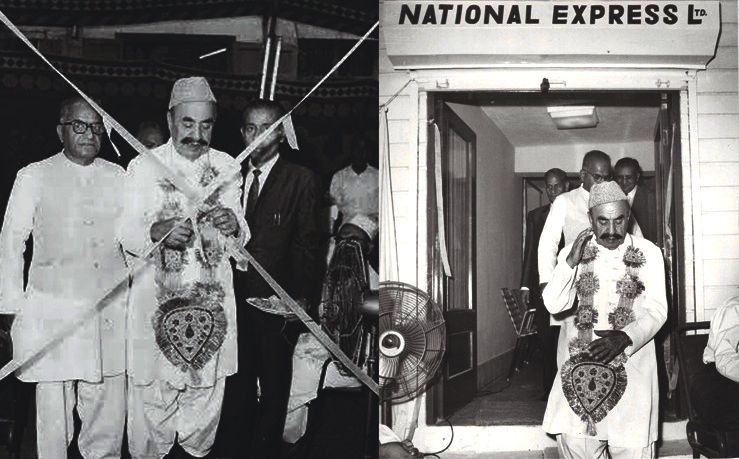
Introducing air travel in Makran region
First General Service Agent for PIA from 1958-89 in Balochistan
Our founding father, the late Haji Muhammad Iqbal Baloch, recognized the vital role of air transport in fostering economic growth and improving accessibility in Balochistan during the 1950s. At that time, traveling by road was arduous, with a journey from Karachi to Gwadar taking up to five days. Haji Muhammad Iqbal Baloch’s vision became even more apparent when immediate travel needs arose, such as medical emergencies, trade, festivals, and holidays. To address this need, he established National Express Ltd, inaugurated in October 1973 by Nawab Mir Bai Khan, the Nawab of Makran. This initiative facilitated flights connecting various cities in Balochistan, including Gwadar, Turbat, and Quetta, contributing significantly to regional development and intercity mobility.
Historic handshakes through the years
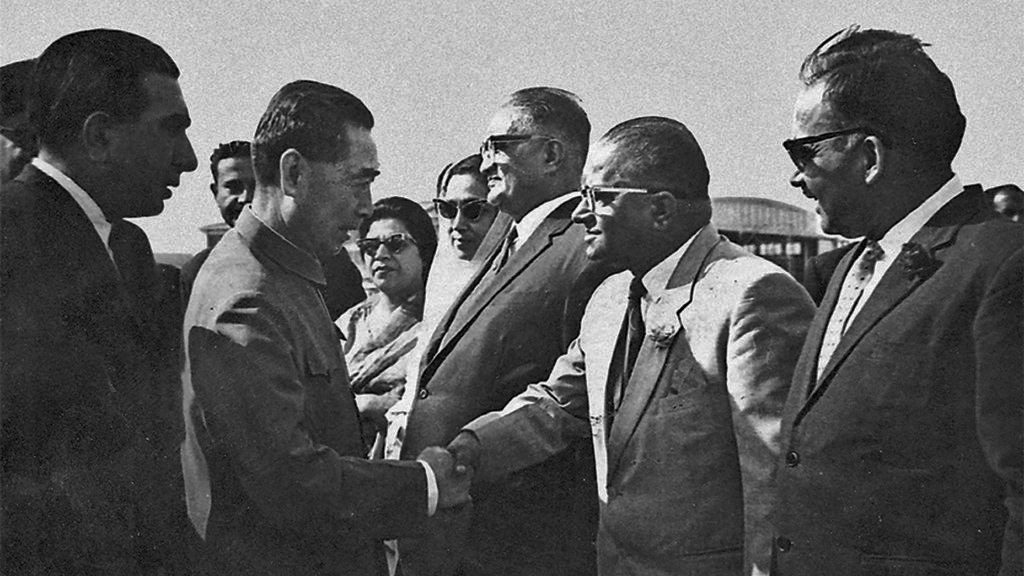
Chou en Lai, Premier of the People's Republic of China
Chou En-lai was a Chinese Communist leader and the 1st premier of the People's Republic of China. He is renowned for his diplomacy and is a highly respected leader of China.
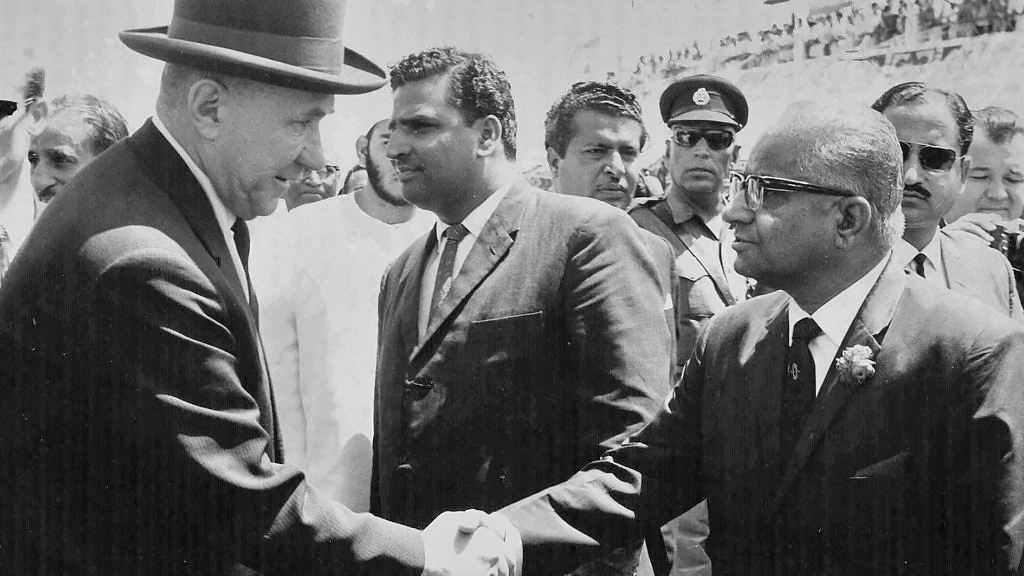
Alexei Nikolayevich Kosygin, Premier of the Soviet Union
Mr. Kosygin served as the Premier of the Soviet Union from 1964 to 1980 and was one of the most influential Soviet policymakers in the mid-1960s.
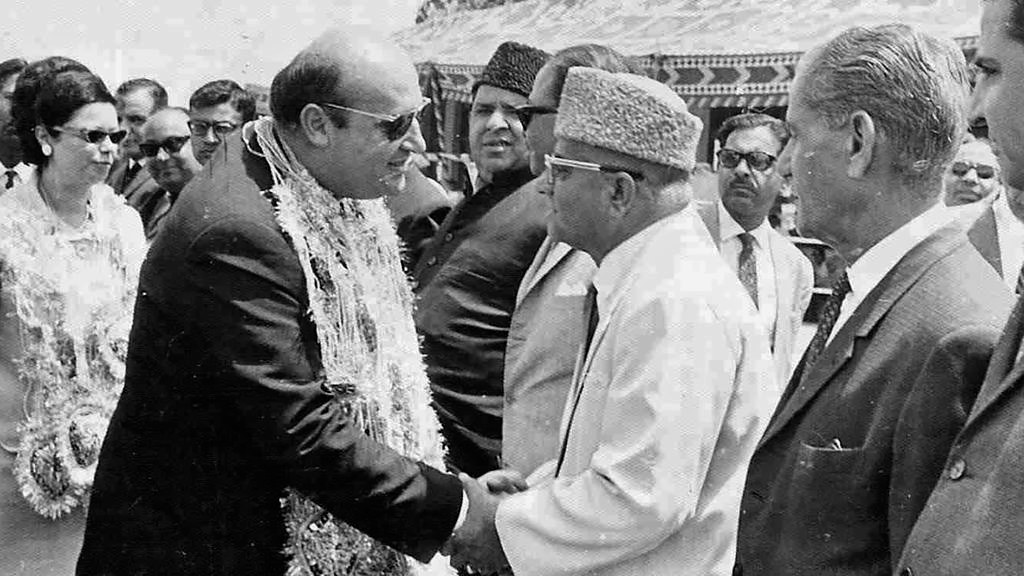
Suleyman Demirel, 9th President of the Republic of Türkiye
Suleyman Demirel was one of Turkey's most prominent center-right political figures, serving as prime minister seven times and as president from 1993 to 2000.
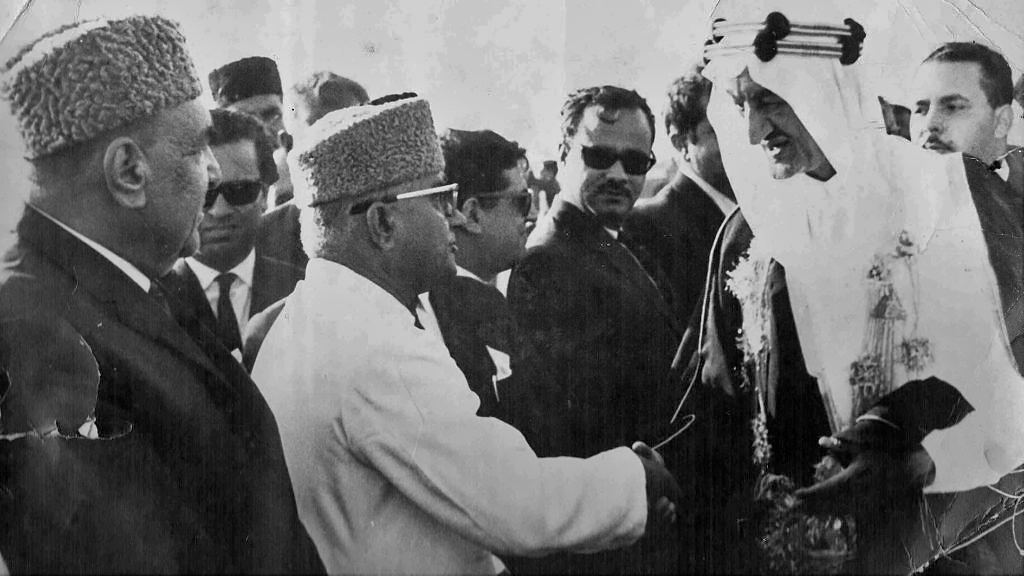
Faisal bin Abdulaziz Al Saud, Crown Prince of Saudi Arabia
King Faisal was the third son of King Abdulaziz. He was the crown prince of Saudi Arabia in 1953 and the Prime Minister of Saudia Arabia in 1954.

Suharto, General of the Army and President of Indonesia
Suharto was an Indonesian military officer and political leader, who was the 2nd President of Indonesia and maintained office for 31 years.
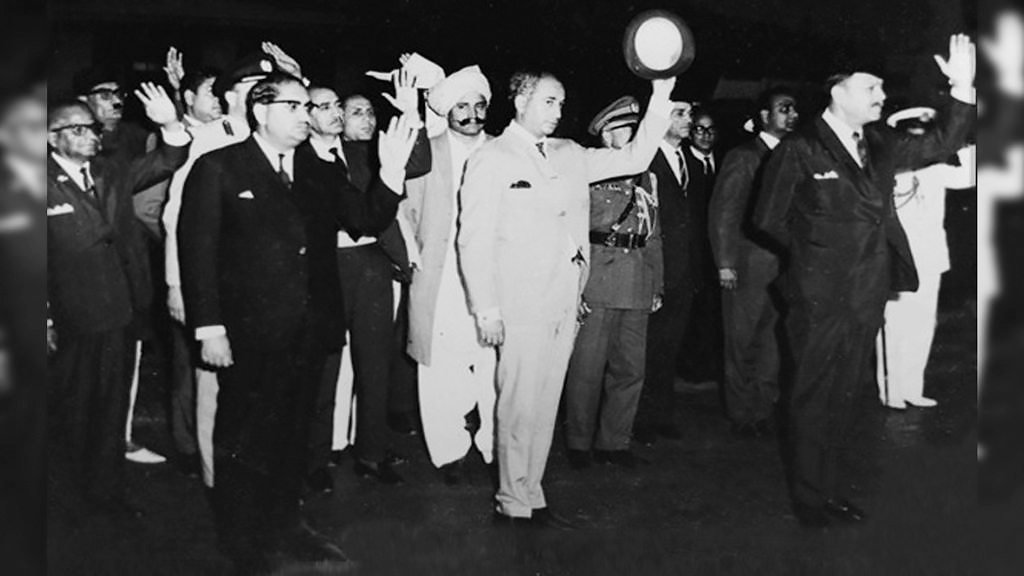
President Ayub Khan and Prime Minister Zulfiqar Ali Bhutto
Mr. Bhutto was the 9th Prime Minister of Pakistan from 1973 to 1977. Muhammad Ayub was a five-star Pakistan Army general and the 2nd President of Pakistan.
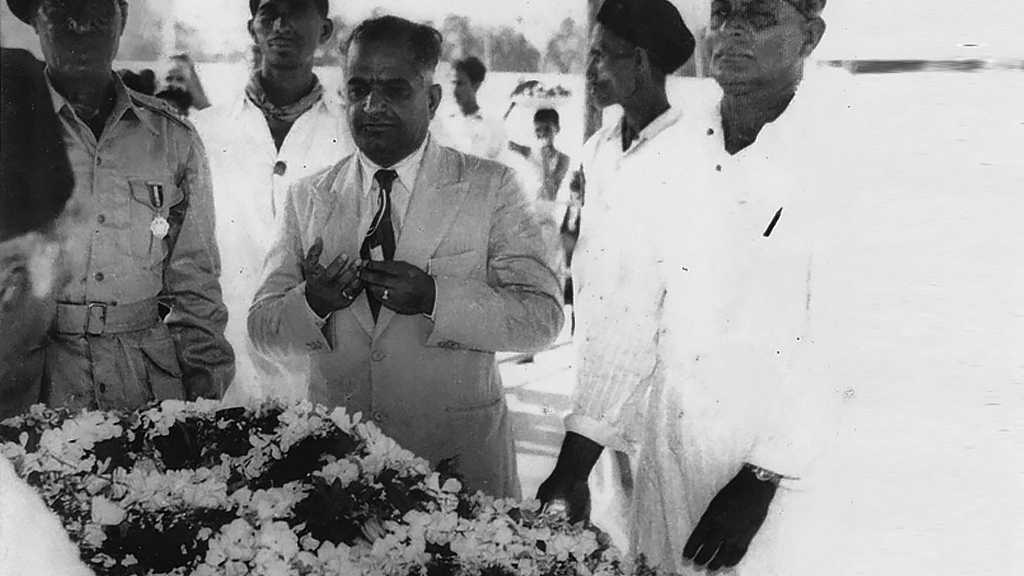
Haji Muhammad Iqbal Baloch at Muhammad Ali Jinnah's tomb
Haji Muhammad Iqbal Baloch visiting the grave of the founder of Pakistan, Quaid e Azam Muhammad Ali Jinnah to recite Fateha at Mazar-e-Quaid, Karachi.
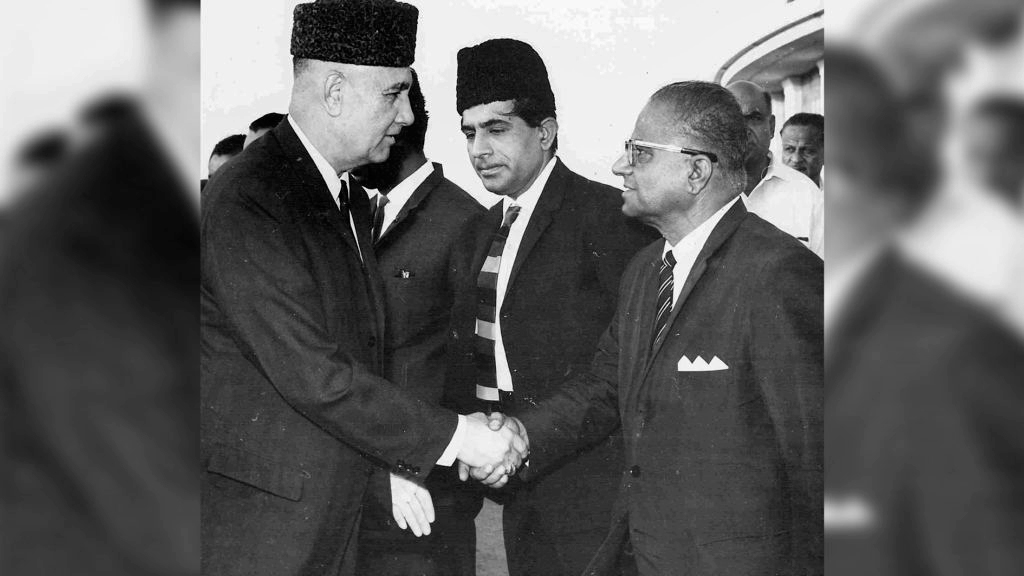
4th Commander in Chief of Pakistan, General Musa Khan
General Musa Khan was a four-star rank army general, politician, and the Commander in Chief of Pakistan Army, serving under President Ayub Khan from 1958 until 1966.
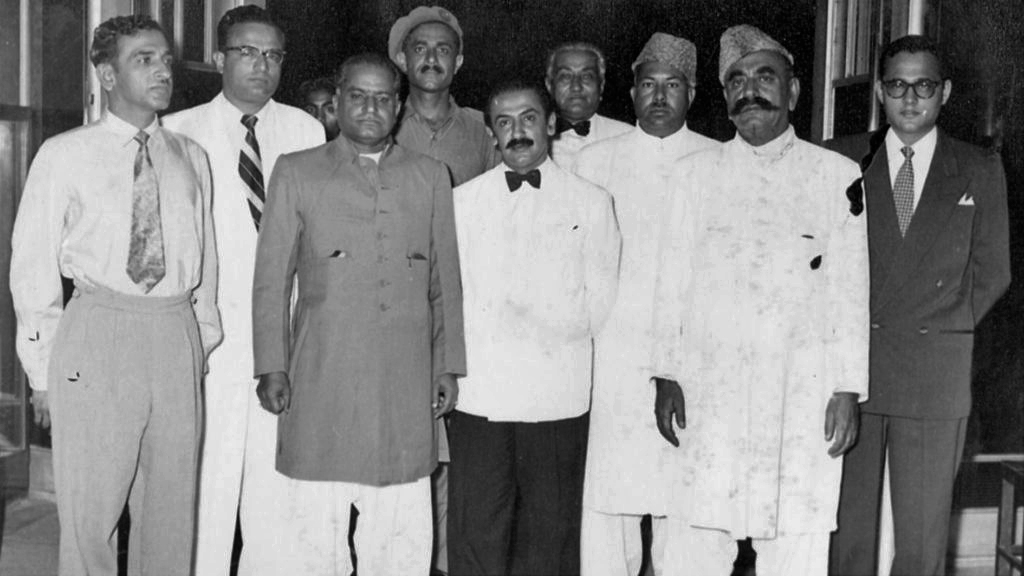
Jam of Lasbela Jam Mir Ghulam Qadir and Nawab of Makran Mir Bai Khan
Jam Mir Ghulam Qadir was Balochistan's Chief Minister from 1985-1988. Nawab of Makran Mir Bai Khan was the ruler of the princely state of Makran in 1955.
Historic handshakes through the years

Chou en Lai, Premier of the People's Republic of China
Chou En-lai was a Chinese Communist leader and the 1st premier of the People's Republic of China. He is renowned for his diplomacy and is a highly respected leader of China.

Alexei Nikolayevich Kosygin, Premier of the Soviet Union
Mr. Kosygin served as the Premier of the Soviet Union from 1964 to 1980 and was one of the most influential Soviet policymakers in the mid-1960s.

Suleyman Demirel, 9th President of the Republic of Türkiye
Suleyman Demirel was one of Turkey's most prominent center-right political figures, serving as prime minister seven times and as president from 1993 to 2000.

Faisal bin Abdulaziz Al Saud, Crown Prince of Saudi Arabia
King Faisal was the third son of King Abdulaziz. He was the crown prince of Saudi Arabia in 1953 and the Prime Minister of Saudia Arabia in 1954.

Suharto, General of the Army and President of Indonesia
Suharto was an Indonesian military officer and political leader, who was the 2nd President of Indonesia and maintained office for 31 years.

President Ayub Khan and Prime Minister Zulfiqar Ali Bhutto
Mr. Bhutto was the 9th Prime Minister of Pakistan from 1973 to 1977. Muhammad Ayub was a five-star Pakistan Army general and the 2nd President of Pakistan.

Haji Muhammad Iqbal Baloch at Muhammad Ali Jinnah's tomb
Haji Muhammad Iqbal Baloch visiting the grave of the founder of Pakistan, Quaid e Azam Muhammad Ali Jinnah to recite Fateha at Mazar-e-Quaid, Karachi.

4th Commander in Chief of Pakistan, General Musa Khan
General Musa Khan was a four-star rank army general, politician, and the Commander in Chief of Pakistan Army, serving under President Ayub Khan from 1958 until 1966.

